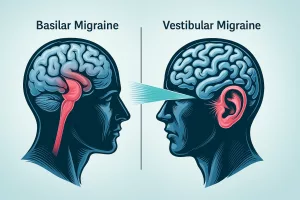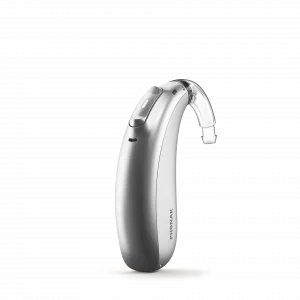Have you ever felt a extraordinary fluttering on your ear, like a tiny moth decided to set up camp in there? If so, you’re not by myself. That peculiar sensation can seize you off guard, leaving you wondering what’s going on inner your head. Whether it’s a faint tickle or a full-on flutter, it’s well worth figuring out what’s in the back of it. Today, we’re going to explore 8 common causes of this ear-fluttering feeling, why it happens, and what you can do approximately it.
A while back, my friend Leilani—she’s one of those folks that always has a story to inform—came to me with this precise hassle. She stated it felt like some thing changed into moving in her ear, and it changed into riding her up the wall. At first, she brushed it off, wondering it was just a fluke. But when it kept going on, she got concerned. After a chunk of digging and a go to to her health practitioner, she found out it became tied to something known as middle ear myoclonus. That’s after I realized what number of humans cope with this and the way little we speak about it. Her tale stimulated me to put in writing this post, so allow’s get into it!
Understanding what causes fluttering within the ear isn’t pretty much satisfying interest—it can be a sport-changer. Catching the basis of the hassle early would possibly clue you into bigger fitness issues before they spiral. On the flip facet, ignoring it can mean letting some thing small turn into a bigger trouble, like listening to hassle down the line. So, seize a cup of tea, settle in, and let’s destroy down the eight culprits at the back of that fluttering eardrum sensation—complete with symptoms and remedies that will help you out.
1. Middle Ear Myoclonus (MEM): The Muscle Twitch Culprit

Ever heard of your ear having a thoughts of its personal? Middle ear myoclonus, or MEM, is when the tiny muscular tissues on your middle ear—the stapedius or tensor tympani—begin twitching on their personal. It’s like they’re throwing a touch party in there, inflicting a clicking or fluttering sound. This situation is pretty uncommon, however it could happen because of stress, fatigue, or maybe no apparent reason in any respect.
Symptoms to Watch For: You’ll listen speedy clicks, ticks, or a fluttery noise, occasionally in only one ear, from time to time both. It is probably regular or pop up randomly. Some parents additionally experience a bit of stress or fullness, like their ear’s attempting to inform them some thing.
What Can You Do? First step: loosen up. Stress could make MEM worse, so deep respiratory or slicing returned on caffeine might assist. Doctors often prescribe muscle relaxants or anti-tension meds to calm those twitchy muscles. In rare instances, surgery to snip the muscle is probably an option, but that’s a remaining lodge. If this sounds like you, an ENT (ear, nostril, and throat) professional can type it out with a short exam.
2. Earwax Buildup: When Your Ear’s Spring Cleaning Goes Awry

Earwax gets a horrific rap, but it’s without a doubt your ear’s herbal protector, trapping dust and insects before they get too relaxed. Trouble is, when it piles up, it may block your ear canal and motive all types of weirdness—which includes that fluttering eardrum feeling. Think of it like a clogged drain: matters just don’t waft right.
Symptoms to Watch For: Beyond the flutter, you may be aware muffled listening to, a dull pain, or dizziness. It’s like your ear’s announcing, “Help, I’m crammed!”
What Can You Do? Over-the-counter ear drops can soften the wax, making it simpler to flush out with a bulb syringe—simply heat water, not anything fancy. But here’s a big no-no: don’t shove cotton swabs in there. You’ll just push the wax deeper and make it worse. If DIY doesn’t reduce it, your doctor can clear it out accurately with special tools.
3. High Blood Pressure: Your Ear’s Unexpected SOS Signal

Surprise—your blood stress can mess together with your ears! When it’s too excessive, it could throw off the blood glide on your internal ear, main to tinnitus. That’s the flowery time period for ear noises like ringing, humming, or yep, fluttering. It’s your frame’s way of waving a little purple flag.
Symptoms to Watch For: Along with the flutter, you might experience dizzy, get complications, or notice your hearing’s off. If you’ve got a records of excessive blood stress, this could be a sneaky sign it’s acting up.
What Can You Do? Get that blood strain in take a look at. Simple stuff like consuming much less salt, taking walks extra, or chilling out can make a distinction. Your health practitioner may tweak your meds in case you’re already on some thing. Once the stress’s down, that fluttering eardrum need to calm down too.
4. Eustachian Tube Dysfunction (ETD): Pressure Problems Galore

Your Eustachian tube is that this nifty little tunnel connecting your center ear to your throat, maintaining air pressure balanced. When it receives blocked—say, from a chilly or allergies—it’s like your ear’s stuck in traffic, and which can motive fluttering or popping.
Symptoms to Watch For: Muffled listening to, a complete feeling, or random pops and clicks. It’s that sensation you get on a plane when your ears won’t “pop” proper.
What Can You Do? Try yawning, chewing gum, or swallowing difficult to nudge that tube open. Decongestants or nasal sprays can assist if allergies or a cold are guilty. For cussed cases, an ENT might advocate a tiny tube to your eardrum to maintain things flowing—sounds wild, however it really works!
5. Patulous Eustachian Tube: When Your Ear’s Too Open

Flip the script on ETD, and you’ve got a patulous Eustachian tube—that means it remains open whilst it should close. This can make you hear your own breathing or voice echoing to your ear, that may sense fluttery or simply undeniable weird.
Symptoms to Watch For: That flutter may include listening to your breath or voice superb loud, like you’re in a tunnel. Some parents sense stress or fullness too.
What Can You Do? Drinking greater water can thicken the mucus in there and help it close up. Nasal sprays might lessen irritation, and in rare instances, surgery can tighten matters up. It’s quirky, but manageable with the proper repair.
6. Meniere’s Disease: The Inner Ear Rollercoaster

Meniere’s disorder is a problematic internal ear condition that throws your balance and listening to for a loop. It’s due to fluid buildup, and one in all its calling cards can be tinnitus—which include that fluttering eardrum sensation.
Symptoms to Watch For: Sudden vertigo (the room spins), hearing loss that comes and goes, or a roaring buzz along the flutter. It’s intense and unpredictable.
What Can You Do? Cutting salt and caffeine can ease fluid buildup, and meds like diuretics would possibly assist. Some parents strive physical remedy for stability, even as extreme instances may want surgery. If this hits domestic, see an ENT pronto—it’s not some thing to mess around with.
7. Hypothyroidism: Your Thyroid’s Sneaky Ear Connection

Low thyroid function—hypothyroidism—can sluggish your complete device down, which include how your body handles fluids. When fluid lingers for your ear, it could trigger listening to modifications and that fluttery feeling.
Symptoms to Watch For: Tiredness, weight gain, bloodless fingers, plus ear stuff like tinnitus or muffled sound. It’s a gradual burn, but the clues add up.
What Can You Do? A blood take a look at can take a look at your thyroid stages, and if they’re off, meds like levothyroxine can get matters back on course. Once your thyroid’s happy, your ears have to follow healthy.
8. TMJ Disorders: Your Jaw’s Ear-Side Drama

Your jaw joint—referred to as the temporomandibular joint or TMJ—sits proper next for your ear. When it’s out of whack from grinding teeth or clenching, it could stir up ear hassle, along with fluttering.
Symptoms to Watch For: Jaw ache, clicking whilst you bite, plus earaches or that fluttery vibe. It’s like your jaw’s yelling at your ear to sign up for the celebration.
What Can You Do? Soft meals, stress comfort, or a mouthguard from your dentist can ease the stress. Physical therapy would possibly assist too, and in hard cases, surgical procedure’s an option. A TMJ seasoned or dentist can pinpoint the repair.
➤ Read more: Ear Ache & Sore Throat: Causes, Relief & When to Worry.
Wrapping It Up: What’s Next for Your Fluttering Eardrum?
There you cross—8 motives your ear might be fluttering, from twitchy muscles to jaw drama. Each one’s got its own vibe, symptoms, and answers, but the large takeaway? Don’t forget about it if it sticks around. A quick chat along with your doctor or an ENT can pinpoint what’s up and get you back to peace and quiet.
Got a fluttering eardrum tale of your own? Drop it inside the remarks—I’d like to pay attention what you’ve been through! And if you determined this helpful, proportion it with a pal who’s been scratching their head over the equal thing. Let’s keep the convo going!

























Leave a Reply
You must be logged in to post a comment.